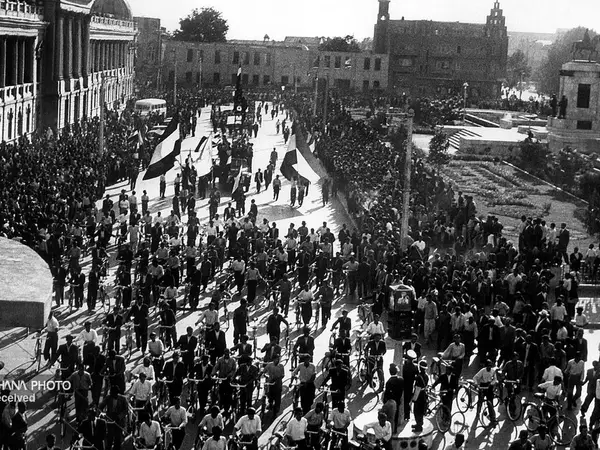The Iranian regime is planning to hand over the oil industry to the “private sector,” which will effectively place the national wealth in the hands of insiders.
In 1951, the Iranian parliament seized control of the country’s oil industry which had been run by private companies, largely controlled by the British. The movement that led to the legislation was led by Mohammad Mosaddegh, a populist lawmaker who became Iran’s prime minister a year later. The legislation led to the nationalization of the Anglo-Iranian Oil Company, a British firm founded in 1909 following the discovery of a large oil field in Khuzestan province and the first to extract petroleum in Iran.
According to an article in reformist daily HamMihan on Tuesday titled “Transitioning Beyond Oil Nationalization” the government, in its Seventh Development Plan, seeks to hand over the rights for exploration, development, extraction, production, and exports of oil and gas to the private sector. It practically means that the government no longer regards oil and gas reserves as the assets of the nation but views it as its own property, and has decided to transfer the rights to the National Development Fund (NDF) that later can sell rights or ownership to domestic entities.
More than 80 percent of Iran’s economy is controlled by the clerical regime, including the Revolutionary Guard, leaving little room for real businessmen or private companies to flourish.
The administration of President Ebrahim Raisi submitted the country’s Seventh Development Plan to the parliament last month. After lawmakers refused to approve Raisi’s initial plan apparently for being too general and vague, the administration practically extended its expired development plan for the third time since 2021 with a few amendments and called it a new plan. The old document, the 6th Development Plan, was to be implemented between 2016 and 2021, but many parts of it have remained untouched as the government lacked the appropriate resources due to a catalogue of foreign policy and economic problems. If approved by the parliament, two provisions of the new plan authorize the government to facilitate the delegation of contracts in the oil industry.
According to the amendments, it is stipulated that “the government is allowed to sign contracts (with third parties) on exploration, development, extraction, production, sale, and export at oil and gas fields via the Oil Ministry to settle its debts to the NFD, without transferring their sovereignty.”
Warning of the consequences of such a move, HamMihan said the main concerns are not limited to the act of transferring the national rights to the private sector, but the fact that the country’s oil and gas industry will end up at the hands of quasi-state organizations and institutions controlled by regime insiders. Based on the experience from similar measures, the entities that truly represent the private sector lack the capability and resources needed to handle such big projects, the daily said. It argues that semi-governmental or semi-public firms (called Khosoulati in Persian) will be the ones that would eventually take control over the fields. Khosulati is portmanteau word made from fusing two Persian adjectives for “private” and “governmental” and refers to companies that are sold to the private sector on the surface, but are owned by the government, IRGC-linked entities, regime’s bigwigs or entities under the control of the Supreme Leader.
The sanctions imposed on Tehran and the country’s murky regulations and shady oil exports make it extremely difficult – if not impossible – to attract foreign investors, who would fear US reprisal and punitive measures in case of entering the country’s oil and gas market.
Pundit Mohammad Mashinchian told Iran International that Iran’s oil and gas industry is in dire need of infrastructural investment and the NDF was meant to achieve that but failed like many other good ideas in the Islamic Republic. He described the latest decision as a “coup de grâce to the initial idea” of the fund. Highlighting Iran’s corrupted oil economy, he said the sanctions serve as a pretext to giving control of the country’s exports to the authorities’ close circles. “This is laundering Iran’s national wealth into the hands of the regime’s circles of power,” he noted.





















